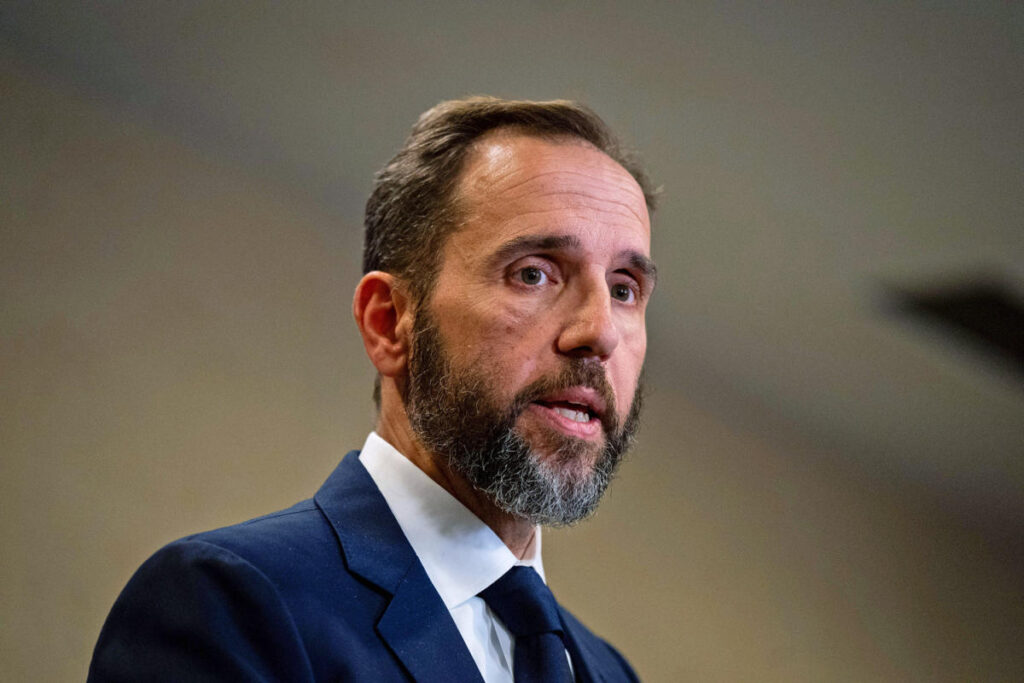Special counsel Jack Smith is reportedly planning to resign from his role before President-elect Donald Trump is inaugurated, according to sources familiar with the situation. Smith’s office has been considering how best to conclude its investigations into two pending federal criminal cases against Trump, given the Justice Department’s long-standing position that a sitting president cannot be criminally charged. This information was first reported by The New York Times. One of the critical issues in the upcoming weeks is whether Smith’s final report, which will detail any potential charges, will be released before Trump takes office. Under Justice Department regulations, Smith is obligated to submit a confidential report to Attorney General Merrick Garland, who has the discretion to decide whether to make it public.
In a radio interview in late October, Trump indicated that if he were to win the presidency again, he would waste no time in firing Smith, stating that he could do so “within two seconds” and claiming he had immunity under Supreme Court rulings. This statement raises the question of whether the next attorney general would opt not to publish Smith’s final findings, given the political tension surrounding the special counsel’s investigation. Despite the election results, Smith’s team was proceeding with the election interference case against Trump, which has continued to face challenges, particularly from Trump’s defense team, who have sought to delay proceedings through appeals.
Trump was indicted in 2022 over actions he took to overturn the results of the 2020 presidential election, but challenges arose from appeals by his legal representatives. A significant setback came in July when the Supreme Court ruled that Trump possesses some degree of immunity regarding actions taken while in office. In response, Smith’s team revised the indictment, leading to the issuance of a new one by a federal grand jury. In parallel, Trump has faced legal challenges related to the alleged mishandling of classified documents post-presidency, with one federal judge deeming Smith’s appointment illegal and dismissing that case, which is now under appeal.
Recently, Smith requested the U.S. Court of Appeals for the Eleventh Circuit to postpone proceedings in the classified documents case, echoing a similar request made in the election interference case. Smith’s motion asks the court for an extension until December 2, allowing his team time to assess the implications of Trump’s forthcoming presidency on the ongoing legal proceedings. This indicates a strategic maneuvering on the part of Smith’s office to navigate the unprecedented nature of having an incoming president embroiled in criminal investigations.
Throughout the course of these investigations, Smith has expressed a commitment to move quickly toward trial charges against Trump; however, Trump’s legal team has been successful in delaying both cases. Trump’s continuing public criticism of Smith during campaign rallies appears to have had an influence on the proceedings. As these cases unfold, they present a unique legal dilemma, especially concerning potential unnamed co-conspirators mentioned in the indictments. The question of whether they could face prosecution despite Trump’s election raises critical issues regarding accountability and justice.
As the situation develops, there are no clear Justice Department protocols that would exempt alleged conspirators from prosecution simply because they are affiliated with an incoming president. The gravity of these legal matters, set against the backdrop of Trump’s return to prominence in American politics, highlights the complexities of legal accountability in the political sphere. Smith’s upcoming decisions and the potential release of his findings are likely to have significant repercussions, not only for Trump and his associates but also for the broader landscape of American political and legal norms.

